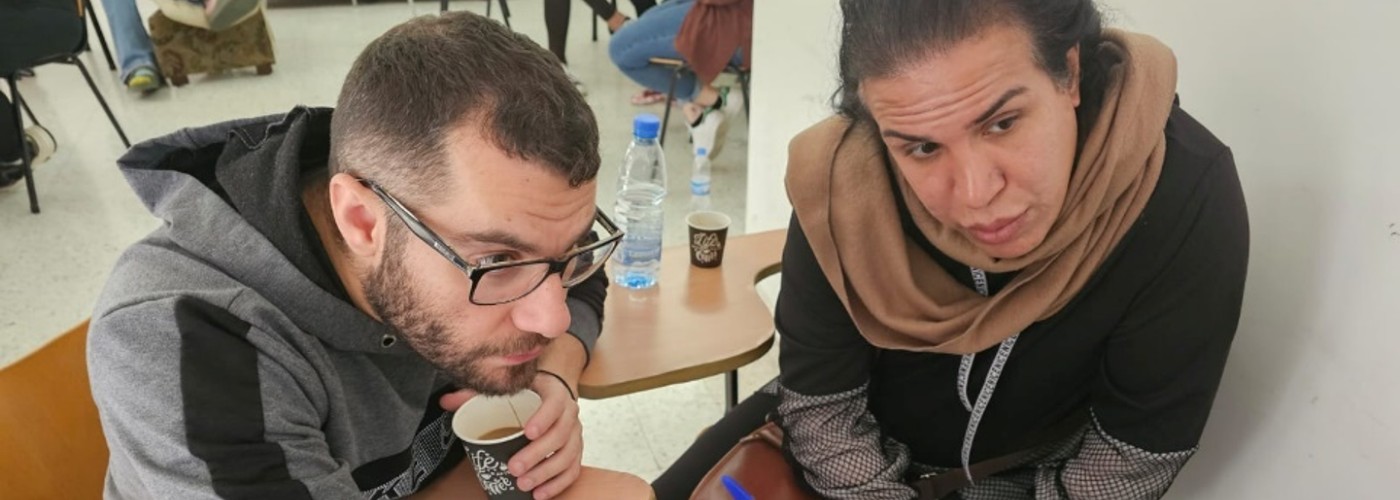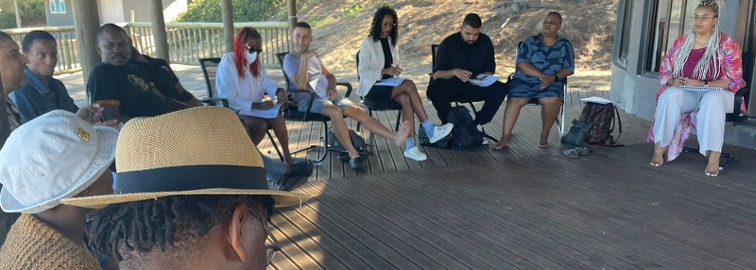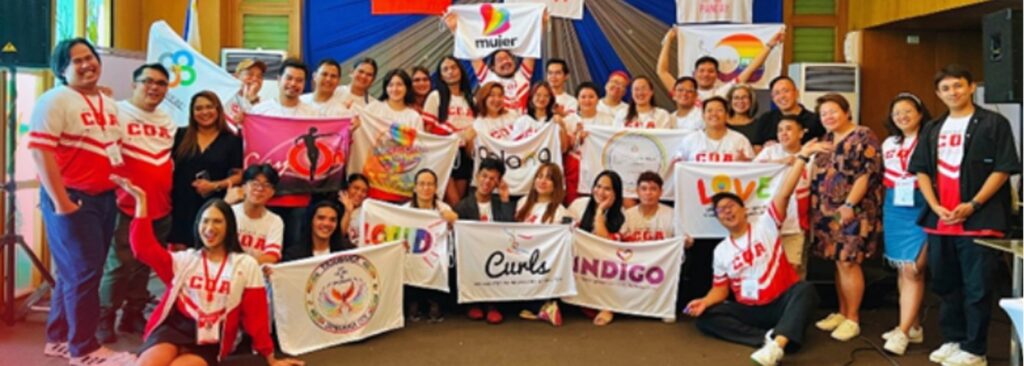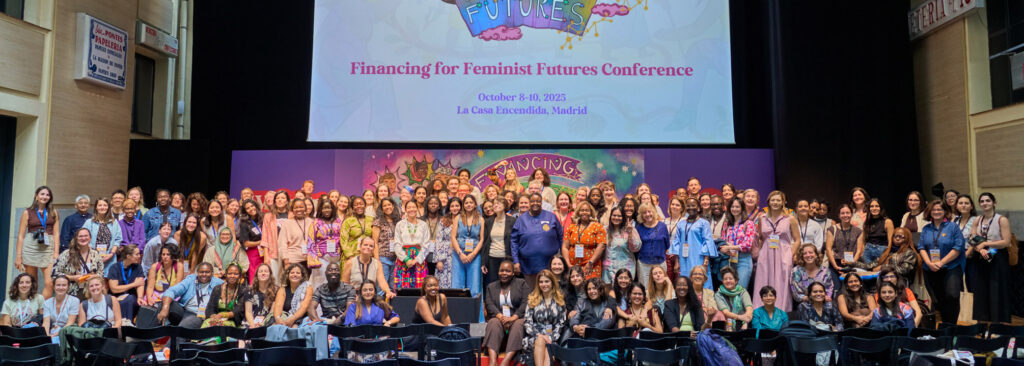This is a story of transformation. One that reveals how community mobilization shapes both individual and collective change. Self-described as an illiterate trans* woman, Najla’s transformation to a community mobilizer in Lebanon exemplifies the effectiveness of the QCM program through community mobilization.
In her comic, she titled “Hand in Hand,” Najla drew herself as a butterfly. This was not symbolic. Najla transformation materialized, using her motorcycle to deliver 5,200 hot meals, 55 blankets, as well as distributing medications and clothing in times of war. “I became a butterfly that flies,” she says, “a very beautiful one” with the help of her community, friends, and her (husband) partner at the time.
When a friend called Najla asking for a blanket, her response was immediate action: “I quickly went and gave her what she needed” with “all my strength and an open heart.” Johnny, a QCM fellow and friend of Najla, explains, “Najla took care of me more than my mother would, if she were still alive.” Johnny highlights how she consistently checks on community members and always asks if anyone is in need of anything. “If 1MORECUP gave me a resource box, I would distribute half of it to a friend in need,” Najla explains, demonstrating her commitment to resource sharing.
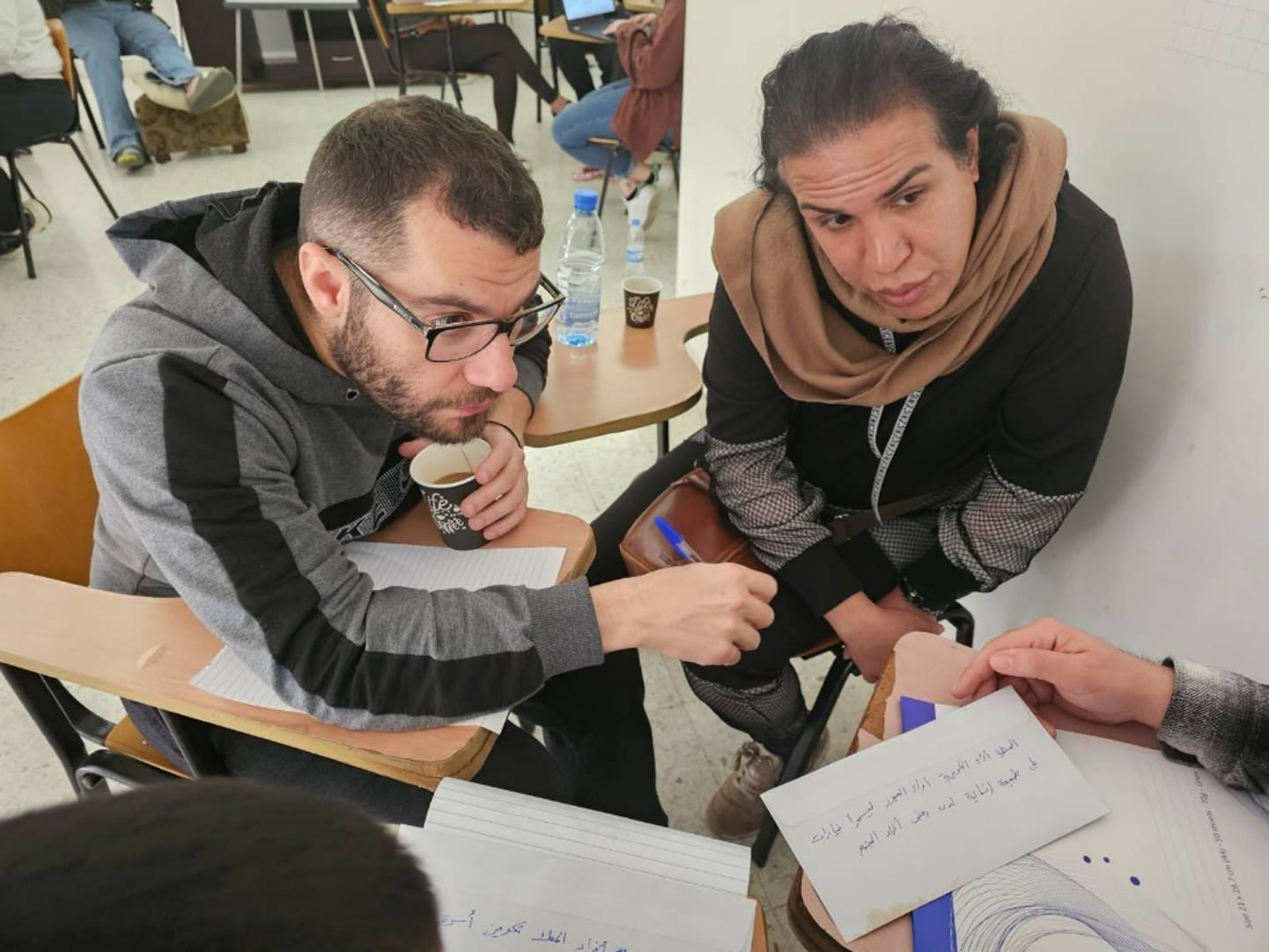
Community building
Najla shares how important community building is and how she directly benefitted from the trainings. “You guys made us come close to each other – after everyone was going opposite to each other.” Najla is not stopping anytime soon. She continues to utilize her resources, her educational knowledge, and the networks gained for the betterment of the lives of the queer community. Reflecting on all of that, Najla says, “The best thing I did in my life was entering 1MORECUP.”
About F2BM in Lebanon
When the F2BM program first took root in Lebanon in 2022, the country was already reeling from overlapping crises: economic collapse, political paralysis, and a steady erosion of trust in institutions. For LGBTIQ+ activists, this meant pushing forward in a space where legal ambiguity under Article 534 could be turned against them at any time, while anti-gender movements fanned moral panics and sought to erase their visibility. Yet, Lebanon’s movement remained strong, carrying forward decades of community-building and advocacy, and using the program’s safe spaces to keep imagining futures in the face of shrinking possibilities.
As the crises deepened, the Community of Action became a nucleus of resilience. Despite fear, displacement, and the strain of living under recurring conflicts – of which, war – CoA members managed to keep one another anchored. They re-prioritized their work, shifting from long-term advocacy to immediate needs: community safety, mutual care and support, and knowledge production in times of crisis. Meetings were reorganized, sometimes moved online or relocated to safer places, while networks of solidarity expanded to include those most at risk, such as refugees and internally displaced community members.
In the midst of uncertainty, the CoA cultivated adaptability, finding creative ways to remain present for their communities while sustaining the vision of a collective movement. What had begun as a struggle against anti-gender attacks soon became a fight for basic safety and continuity. Still, in this climate of fear and uncertainty, the program turned into a lifeline, holding space for resilience, solidarity, and the insistence that Lebanon’s queer community deserves dignity and a future.

